Introduction to Indigenizing and Decolonizing by Grey and Ivy
Disclaimer
This resource is just the start. Reading this is not enough and to truly embrace Indigenization and Decolonization it starts with unpacking your own understanding, biases and inherited knowledge about the true history of Canada and Indigenous Peoples. This is an ongoing process and for each person, their journey will look different. This resource is a guide to support you on your own journey and can be and should be referred back to multiple times.
As part of your journey with Indigenization and Decolonization, you must find ways to listen and to engage with the traditional territories of where you live work and teach as well as, Indigenous students, staff, faculty, Indigenous communities, and Elders/Knowledge Keepers.
Land, place, and Indigeniety can be very localized constructs. There are rich history to the Indigenous Lands we inhabit, each with their own cultures, peoples, and knowledges. Take care to honour the specificities of your local Land and continue to listen to and empower the local Indigenous voice.
Change is a multi-faceted process occurring on the personal, cultural, and systemic levels. We need to encourage and hold accountable institutions to champion a continuous and never-ending process of Indigenization and Decolonization. This starts with supporting and empowering Indigenous people and Indigenous voices as well as developing and/or adopting a calls to action.
Treat this resource as a supplement to the Truth and Reconciliation (2015) Calls to Action: https://ehprnh2mwo3.exactdn.com/wp-content/uploads/2021/01/Calls_to_Action_English2.pdf
This resource can never be ‘complete’ nor ‘finished’ and may not be up to date. Please share your thoughts and especially, flag anything that may be viewed as harmful to the mission of Decolonization and Indigenization. Further resources and/or stories are something we continue to interweave with the content – if you have any stories to share, references, or recommendations, please reach out.
To start a dialogue or discussion, please do not hesitate to contact CICan and/or the module authors. For Grey & Ivy, email jointhestory@greyandivy.ca
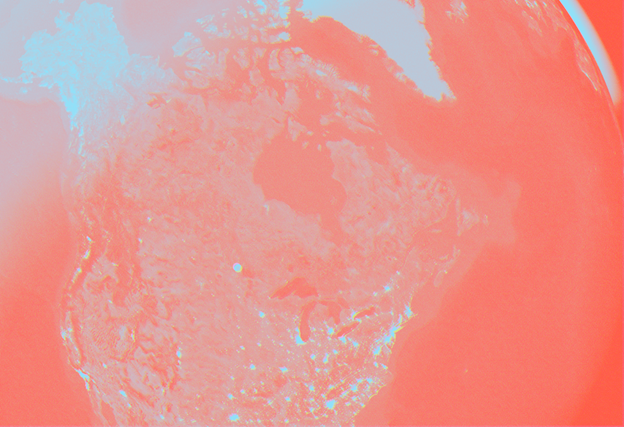
Acknowledgements
We acknowledge that this Land we call Canada was inhabited by countless Indigenous Nations for thousands of years before colonization. Settlers stole the land through politically ceded treaties, often not honoured, or by unceded means. This history of colonization has inflicted trauma that continues to be felt today. We live in a settler-colonial world that was built upon the tragedies of the past. The policies and practices put in place by the Canadian government, such as residential schools and the Sixties Scoop, to name a few, perpetuated harm and trauma on Indigenous communities for generations.
The effects of these policies are still felt today as intergenerational trauma, discrimination, and racism continue in the form of mental health issues, substance abuse, and a breakdown of traditional cultural practices. In other words, colonization is still ongoing to this day. Addressing the ongoing impact of these policies on Indigenous peoples is necessary for reconciliation. This involves implementing the calls to action outlined by the Truth and Reconciliation Commission, supporting Indigenous-led initiatives and movements, and educating ourselves and others about Indigenous history and ongoing struggles. Only through these ongoing efforts can we hope to build a more just and equitable future for all Canadians.
This resource was developed by Grey & Ivy and Grounded Architecture.
Grey & Ivy and Grounded Architecture are situated on Treaty #1 and Treaty #3 Territories, lands of the Anishinaabeg, Anishininewak, Inninew, Oji-Cree, Dakota Oyate, Denesuline and Nehethowuk Nations, and on the homeland of the Métis Nation. We are grateful for the water we drink, which comes from Shoal Lake on Treaty #3, and for the hydroelectricity we access that runs from northern Manitoba on Treaty #5. Communities and organizations we collaborated and partnered with are on Treaty #1, Treaty #3, and Treaty #6. We respect the Treaties that were made on these territories, we acknowledge the harms and mistakes of the present and of the past, and we dedicate ourselves to move forward in partnership with Indigenous communities in the spirit of truth, reconciliation, and collaboration.
Grey & Ivy and Grounded Architecture
Grey & Ivy and Grounded Architecture are a team of thinkers, social impact entrepreneurs, researchers, educators, and architects located across various territories of Turtle Island (Canada), including the traditional territory of the Anishinaabe (Ojibwe), Ininew (Cree), Dakota peoples, Métis, Blackfoot Confederacy, xʷməθkʷəy̓əm (Musqueam Indian Band), Sḵwx̱wú7mesh (Squamish Nation), səlilwətaɬ (Tsleil-Waututh Nation), Pentlatch, and K’ómoks.
It is crucial we deeply understand and acknowledge the histories of the lands we stand on and what cost the Indigenous peoples have suffered. We are companies founded on the notion of empowering people, especially Indigenous peoples, and to the absolute best of our abilities, all of our work is conducted in partnership with communities, Elders, and Knowledge Keepers.
Our team consists of diverse perspectives with a mix of settler and Indigenous heritage, diverse personal backgrounds, personal location, education, and expertise.
—————————————-
We would like to express our gratitude to all those who shared their stories and perspective in the creation of this resource. This resource was made possible with the Colleges & Institutes Canada: ImpAct Climate Program.
Decolonizing and Indigenization
If we want to contribute to systemic change, we need to understand the concepts of decolonization, Indigenization, and reconciliation.
Decolonization
Decolonization is the process of deconstructing colonial ideologies of the superiority and privilege of Western thought and approaches. On the one hand, decolonization involves dismantling structures that perpetuate the status quo and addressing unbalanced power dynamics. On the other hand, decolonization involves valuing and revitalizing Indigenous knowledge and approaches and weeding out settler biases or assumptions that have impacted Indigenous ways of being. For non-Indigenous people, decolonization is the process of examining your beliefs about Indigenous Peoples and culture by learning about yourself in relationship to the communities where you live and the people with whom you interact.
We work in systems that perpetuate colonial ideals and privilege Western ways of doing. For example, many student services use forms and procedures instead of first initiating relationships with students. This is a colonial process that excludes rather than includes. Also, how libraries catalogue knowledge is Western and colonial.
Decolonization is an ongoing process that requires all of us to be collectively involved and responsible. Decolonizing our institutions means we create spaces that are inclusive, respectful, and honour Indigenous Peoples.
The call for decolonizing education and including Indigenous ways of knowing and being in education was first articulated in 1972 in “Indian control of Indian education” [PDF] by the National Indian Brotherhood (now the Assembly of First Nations).
“We want education to give our children the knowledge to understand and be proud of themselves and the knowledge to understand the world around them.” (p. 1)
Indigenization
Indigenization is a collaborative process of naturalizing Indigenous intent, interactions, and processes and making them evident to transform spaces, places, and hearts. In the context of post-secondary education, this involves including Indigenous perspectives and approaches. Indigenization benefits not only Indigenous students but all students, teachers, staff members, and community members involved or impacted by Indigenization.
Indigenization seeks not only relevant programs and support services but also a fundamental shift in the ways that institutions:
Include Indigenous perspectives, values, and cultural understandings in policies and daily practices.
Position Indigenous ways of knowing at the heart of the institution, which then informs all the work that we do.
Include cultural protocols and practices in the operations of our institutions.
Indigenization values sustainable and respectful relationships with First Nation, Métis, and Inuit communities, Elders, and organizations. When Indigenization is practiced at an institution, Indigenous people see themselves represented, respected, and valued and all students benefit. Indigenization, like decolonization, is an ongoing process, one that will shape and evolve over time.
Indigenization is not an “Indigenous issue,” and it is not undertaken solely to benefit Indigenous students. Indigenization benefits everyone; we all gain a richer understanding of the world and of our specific location in the world through awareness of Indigenous knowledge and perspectives. Indigenization also contributes to a more just world, creating a shared understanding that opens the way toward reconciliation between Indigenous and non-Indigenous people. It also counters the impacts of colonization by upending a system of thinking that has typically discounted Indigenous knowledge and history.
Indian control of Indian education: http://www.oneca.com/IndianControlofIndianEducation.pdf
This chapter, Decolonization and Indigenization, is reproduced with permission by:
Pulling Together: A Guide for Front-Line Staff, Student Services, and Advisors by Ian Cull; Robert L. A. Hancock; Stephanie McKeown; Michelle Pidgeon; and Adrienne Vedan is licensed under a Creative Commons Attribution-NonCommercial 4.0 International License, except where otherwise noted.
References
Cull, I., Hancock, R.L.A., McKeown, S., Pidgeon, M. & Vedan, A. (2018). Decolonization and Indigenization. Pulling Together: A Guide for Front-Line Staff, Student Services, and Advisors. Victoria, BC: BCcampus. Retrieved from https://opentextbc.ca/indigenizationfrontlineworkers/
Introduction
Global News. (2021). Teaching the truth: Why education needs to be informed and led by Indigenous people. The New Reality. Global News. https://www.youtube.com/watch?v=vxbL_Zjcnpg
Practicing Indigenous Knowledges is an active and never-ending process. It is more than the Western construct of knowledge that one can attain, it is a practice of relating to and with the world (Brayboy, 2009). Indigenizing and Decolonizing our educational institutions and society at large is a way in which we can elevate Indigenous Knowledges. “For too long the settler worldview has dominated everything,” (Johnson, 2020 as cited by Hyslop, 2020). Calls to Action have been formalized across various organizations and levels of governments all the way up to the Government of Canada (2023).
Education, business, and industry have been identified by the Truth and Reconciliation Commission of Canada (2015) as key components for advancing reconciliation. The trades play a fundamental role in our society, and introducing the concepts of Indigenizing and Decolonizing to new graduates in these fields can have a ripple effect on the broader system. As educators, leaders, students, and citizens, we are and/or inspire the future of education, business, and industry and therefore have the responsibility to understand the Land we live on and the teachings that it provides.
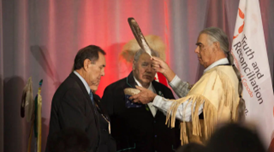
Indigenous peoples across the Americas have faced the largest genocide in human history (Ostler, 2019). The likes of which have left a legacy to this day in many forms such as intergenerational trauma and systemic racism. In strikingly recent times, Residential Schools, a governmental program, removed children from their families oftentimes, never to return home due to the poor conditions and abuse (Residential Schools in Canada, 2023). To this day, Indigenous women, girls, and Two-Spirit, lesbian, gay, bisexual, transgender, queer, intersex (2SLGBTQQIA) people face a disproportionate amount of violence and sexual assault, and “are 12 times more likely to be murdered or missing than any other women in Canada” (National Inquiry into Missing and Murdered Indigenous Women and Girls, 2019, p 55). The dark history and ongoing oppression leave Indigenous peoples severely disadvantaged in the current Canadian society.
Although societal ideology is gradually shifting, the voices of Indigenous peoples continue to be silenced. Systemic racism continues to oppress Indigenous peoples which not only does it destroy opportunity for leadership and advocacy it often develops into feelings of anxiety, depression, and low self-esteem (Rees, 2020). It is everybody’s obligation to stand up for marginalized individuals to allow them to have a voice.
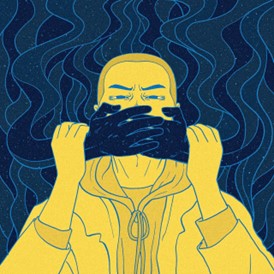
This resource was created for people to gain a working understanding and empowerment to continually learn about how to incorporate Indigenous ways of knowing, local community, and the Land into our institutions in an effort to Indigenize and Decolonize. The true learning will occur outside of this resource, from discussions with peers, interacting with communities, and sharing with Elders/Knowledge Keepers. Ultimately, to truly empower Indigenous peoples, it is essential to ensure their representation in leadership positions, from instructors to Elders-in-Residence, as this can have a profound and lasting impact.
Our world is currently facing a human-induced climate crisis, which is causing widespread disruption in nature and affecting the lives of billions of people around the world (Intergovernmental Panel on Climate Change, 2022). Most capitalistic practices have been identified as a major contributor to climate change often prioritizing corporate profits while disregarding the needs of the Land from which they profit (Rich, 2019). Capitalism has the funds and power to tackle climate change but will need to adopt a value system that respects and places value upon the unquantifiable elements of our natural environment (Turner, 2019).
Indigenous people have a deep connection to the land, and their traditional practices are often based on living in harmony with nature. Indigenous Knowledges do not see dichotomies between human and non-human, natural and supernatural; instead, they stress interrelatedness and connectivity – a holistic perspective (Cousins, 1996).
“When people recognize a spiritual essence shared by the world around them, their interactions with the land take on a quality of reverence and respect. Instead of being one-sided, with the humans taking what they need and not giving back, these relationships become mutual, based on reciprocity.”
– Cousins (1996)
Sustainability or ‘greening’ is not simply an add-on to our current practices, they do not occur as individual tasks. Sustainable practices must be integral to everything that we do.
Mi’kmaq Elder Albert Marshall developed the idea of Etuaptmumk, translating to “Two-Eyed Seeing” (Bartlett et al.,2017). Two-Eyed Seeing is described as the ability to see through one eye with the strengths of Indigenous Knowledges and from the other eye with the strengths of Western knowledges (Marshall as cited by Bartlett et al., 2015). Imagine what society may look like if it were to adopt the pluralistic approach of Two-Eyed Seeing.
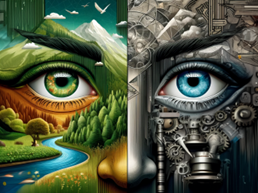
Integrating Indigenous ways of knowing with education requires a deep and thorough approach.
Incorporating Indigenous perspectives into education extends beyond adding content to the existing Western curriculum; it requires Indigenous Ways of Knowing to be deeply integrated into education’s core, affecting everything from content to meta-cognitive skills and pedagogy. It is also crucial to remember that asking questions and acknowledging mistakes are part of learning. Being open and vulnerable to new viewpoints fosters broader understanding and inclusivity. This process is vital for genuine reconciliation and enriching our collective knowledge. Only through a comprehensive, honest, and holistic approach can we truly integrate Indigenous ways of knowing into education. It becomes all educators’ responsibility to engage in Truth, Indigenization, and Decolonization as part of reconciliation.
The Four Rs by Kirkness and Barnhardt (2001), offer a guiding framework to building relationships, especially between Indigenous peoples and higher education institutes.
“From an institutional perspective, the problem has been typically defined in terms of low achievement, high attrition, poor retention, weak persistence, etc., thus placing the onus for adjustment on the student. From the perspective of the Indian student, however, the problem is often cast in more human terms, with an emphasis on the need for a higher educational system that respects them for who they are, that is relevant to their view of the world, that offers reciprocity in their relationships with others, and that helps them exercise responsibility over their own lives.” -Kirkness and Barnhardt (2001)
We have the duty to empower communities, Elders, and Knowledge Keepers. If mainstream society allows it, Indigenous Knowledges can play “a central role in mitigation and adaptation actions against climate change,” (Jerez, 2021). We must commit to standing up for marginalized individuals and amplifying their voices, while also recognizing the value and importance of Indigenous leadership and representation. Only then can we achieve a world that honours the Land, its peoples, and its diverse ways of knowing. And only then can we live in a ‘green’ and sustainable world.
Archibald, J. (2012). On the pedagogical potential of storywork. https://vimeo.com/46515750
Learning Objectives
After interacting with this resource, you should be able to
- Defend why Indigenizing and Decolonizing is necessary and valuable
- Manage a safe space for marginalized peoples and culture
- Practice the 4R’s – Respect, Relevance, Reciprocity, Responsibility
- Employ a holistic perspective on education
- Develop partnerships with Indigenous peoples and communities
- Articulate how you participate in Truth and Reconciliation
- Practice Indigenizing and Decolonizing with the understanding that it is an active and never-ending process
ReconciliACTions
It can be challenging knowing where to start. It may feel uncomfortable especially if justice, equity, diversity, and inclusion (JEDI) are not already part of the conversation at your institute. It takes courage to bring up issues with your peers, colleagues, and supervisors. Regardless of your background or history, Indigenous or settler, you do have a role to play in reconciliation.
Reconciliation is not straightforward; many people get frustrated as there is not a checklist to follow. Reconciliation is a practice that we can adopt into our regular jobs workplaces, and day-to-day life.
Here are some ways to further your understanding (For details, see Section 02 – Doing the Work):
- Review the Decolonization and Indigenization module
- Join or form a discussion group on Indigenization and Decolonization
- Immerse in the land and community. “Effective learning does not happen in a content vacuum,” (Anderson, 2008).
- Read and/or watch media by or about Indigenous peoples
- Once you have done the work and can approach with understanding, respect, reciprocity, and humility, connect with Elders/Knowledge Keepers. Can you involve them in your course development and/or delivery?
Here are some tangible actions that you can take (For details, see Section 05 – Build the Local Indigenous Voice):
- Combat Racism
- Create a Safe Space
- Build Indigenous Community Connection
- Support Indigenous students
- Hire Indigenous Instructors and Elders-in-Residence
- Adopt / Develop Calls to Action
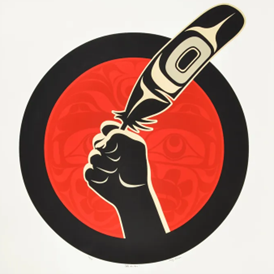
References
Anderson, T. (2008). Towards a theory of online learning. In Anderson, T. & Elloumi, F. (Eds.), Theory and practice of online learning (pp. 45-74). Edmonton, AB: Athabasca University.
Bartlett, C., Marshall, M., Marshall, A., & Iwama, M. (2015). Integrative Science and Two-Eyed Seeing: Enriching the Discussion Framework for Healthy Communities in Beyond Intractability: convergence and opportunity at the interface of environmental, health and social issues; edited by Lars K. Hallstrom, Nicholas Guehlstorf, and Margot Parkes. UBC Press. http://www.integrativescience.ca/uploads/files/Bartlett-etal-2015(Chap10).pdf
Brayboy, B. (2009). Indigenous Knowledges and the Story of the Bean. Harvard Educational Review. DOI: 10.17763/haer.79.1.l0u6435086352229
Cousins, E. (1996). Mountains made alive: Native American relationships with… CrossCurrents. University of North Carolina Press.
Government of Canada. (2023). Delivering on Truth and Reconciliation Commission Calls to Action. https://rcaanc-cirnac.gc.ca/eng/1524494530110/1557511412801
Hyslop, K. (2020). How One School District Is Teaching Settlers to ‘Walk in Two Worlds’. The Tyee. https://thetyee.ca/News/2020/11/26/School-District-Settlers-Walk-Two-Different-Worlds/
Intergovernmental Panel on Climate Change. (2022). Sixth Assessment Report: Headline Statements from the Summary for Policymakers. https://www.ipcc.ch/report/ar6/wg2/downloads/report/IPCC_AR6_WGII_He adlineStatements.pdf
Jerez, M. (2021). Challenges and Opportunities for Indigenous Peoples’ Sustainability. United Nations Department of Economic and Social Affairs. https://www.un.org/development/desa/dspd/wp-content/uploads/sites/22/2021/04/PB_101.pdf
Kirkness, V. J. and Barnhardt, R. (2001). First Nations and Higher Education: The Four R’s – Respect, Relevance, Reciprocity, Responsibility. Knowledge Across Cultures: A Contribution to Dialogue Among Civilizations. R. Hayoe and J. Pan. Hong Kong, Comparative Education Research Centre, The University of Hong Kong http://www.ankn.uaf.edu/IEW/winhec/FourRs2ndEd.html
National Inquiry into Missing and Murdered Indigenous Women and Girls. (2019). Reclaiming Power and Place: The Final Report of the National Inquiry into Missing and Murdered Indigenous Women and Girls. https://www.mmiwg-ffada.ca/wp-content/uploads/2019/06/Final_Report_Vol_1a-1.pdf
Ostler, J. (2019). Surviving Genocide: Native Nations and the United States from the American Revolution to Bleeding Kansas. New Haven: Yale University Press.
Rees, M. (2020). What is the link between racism and mental health? Medical News Today. https://www.medicalnewstoday.com/articles/racism-and-mental-health
Residential Schools in Canada. (2023). The Canadian Encyclopedia. https://www.thecanadianencyclopedia.ca/en/article/residential-schools
Rich, N. (2019). The Next Reckoning: Capitalism and Climate Change. New York Times Magainze: The Climate Issue. https://www.nytimes.com/interactive/2019/04/09/magazine/climate-change-capitalism.html
Turner, A. (2019). Is capitalism incompatible with effective climate change action? World Ecoonomic Forum. https://www.weforum.org/agenda/2019/09/is-capitalism-incompatible-with-effective-climate-change-action/
Truth and Reconciliation Commission of Canada. (2015). Calls to Action. Winnipeg, Manitoba. https://ehprnh2mwo3.exactdn.com/wp-content/uploads/2021/01/Calls_to_Action_English2.pdf
